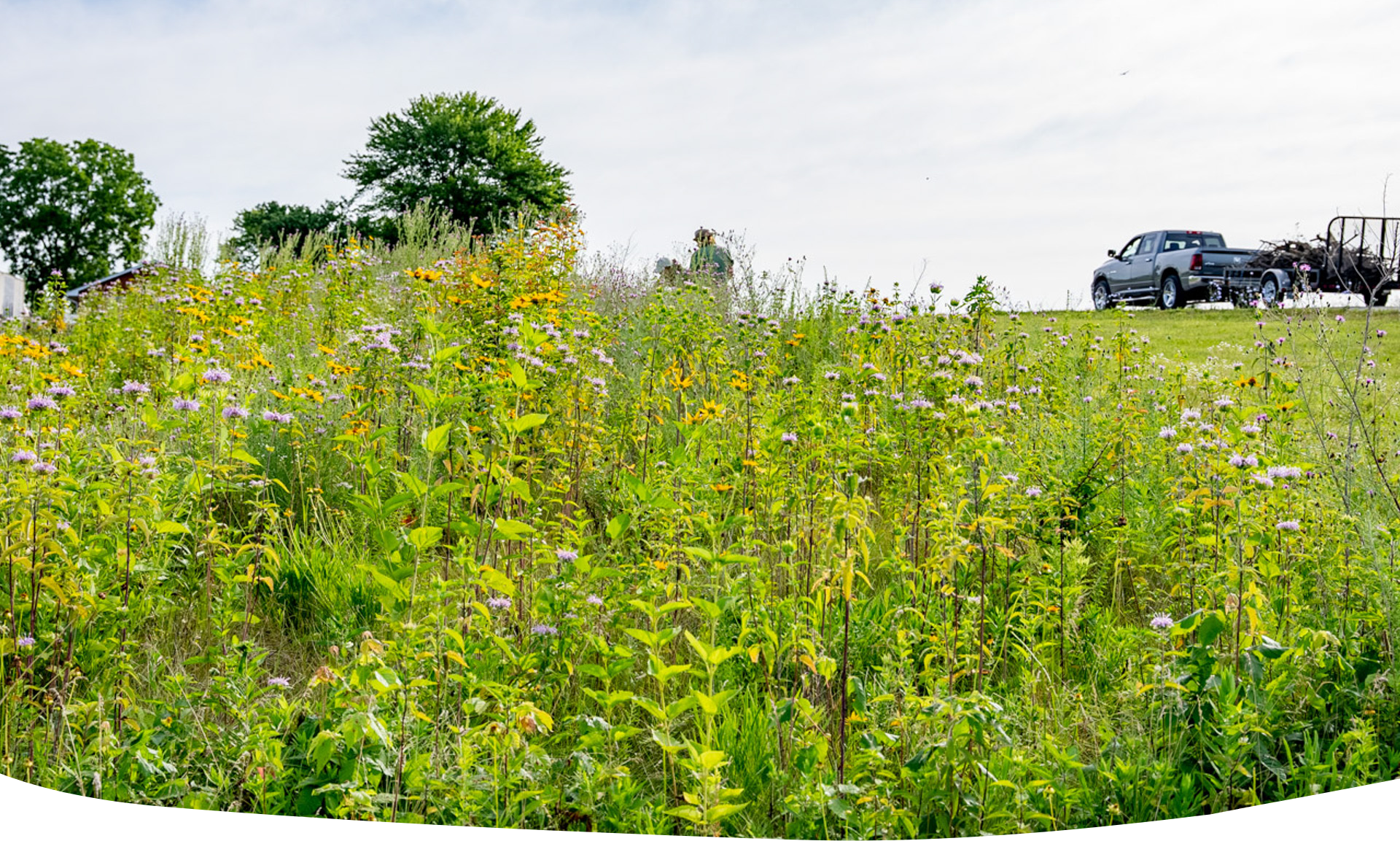
Making Trash Bloom
Sustainability Matters’ flagship initiative reclaims “dead” land by planting native pollinator and wildlife habitat at landfills. Through bringing conservation to the most unexpected place of all – your local dump! – we build community engagement around environmental transformation, inspiring and educating the public to create similar landscapes at home and elsewhere. We’re currently Making Trash Bloom in a cross-section of Virginia counties: rural Rappahannock (pop. 7,000), urban Fairfax (pop. 1.2 million), and the project’s birthplace, agricultural Shenandoah County (pop. 44,000). Our ultimate goal is a model that’s scalable across communities and site conditions, enabling landfills everywhere to bloom.
The excitement for this project is contagious, with landfills as far away as Cape Cod, MA and even NASA's Kennedy Space Center in Florida reaching out to learn how they can Make Trash Bloom in their own neck of the woods!
COMMUNITY ENGAGEMENT
Just as crucial as the native plantings themselves is getting the community involved. We are proud of our network of volunteers and citizen scientists, who regularly visit the landfills, conducting hands-on research measuring biodiversity, plant growth rates, and the erosion of our meadows! A crucial component of scaling up our Making Trash Bloom project is data collection. If you're interested in joining our “Sustainable Science Team,” fill out our Volunteer Interest Form or contact our Environmental Educator, Taylor Bates, at taylor@sustainabilitymatters.earth.
In addition to our adult volunteers, we regularly work with students from local schools, including Mountain Vista Governor’s School (MVGS) and George Mason University’s Smithsonian-Mason School of Conservation (SMSC). Smithsonian entomologist (insect scientist) Jim McNeil leads MVGS and SMSC students in our annual Big Bug Bioblitz, a massive morning of insect collection, counting, and documentation.
To learn more about how we engage youth in our programming, check out Growing The Next Generation of Conservationists.


